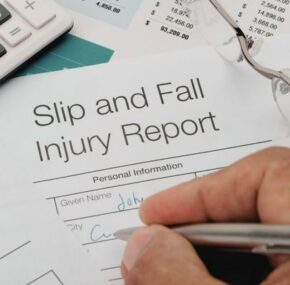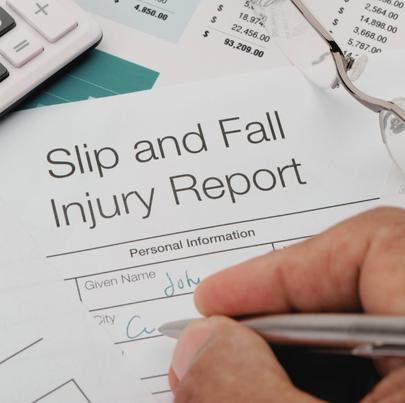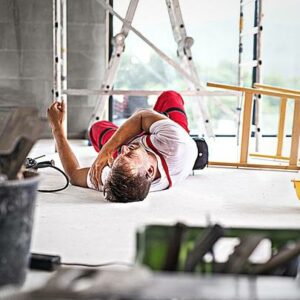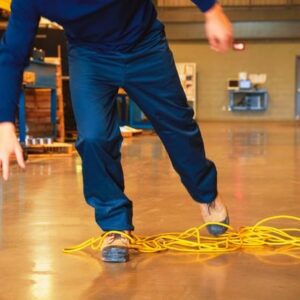You might have a legal basis to sue if you sustain a serious injury after a slip and fall in a parking lot. The parking lot owner must have violated his or her legal duty of care for your claim to be viable and successful. Premises liability law requires property owners to pay attention to their properties and ensure they are always reasonably safe. You can hold a parking lot owner responsible for your injuries even if the owner was unaware of a specific hazardous situation but should have been aware by using reasonable diligence.

It is not always easy to demonstrate that the property owner breached his or her duty to remove dangerous conditions from the parking lot, and you did not cause your injuries by walking carelessly. Also, determining who to hold liable for your injuries requires in-depth research and attention to detail. For these reasons, you should hire a premises liability attorney to guide you through all the steps of recovering damages from the at-fault party (or parties).
Who Can You Sue if You Slip and Fall in a Parking Lot?
Identifying the liable party for your slip and fall in a parking lot is sometimes a challenging task. Your attorney will have to assess the specific details of the alleged fall incident to establish liability. Below are common liable parties for parking lot fall accidents, depending on the facts and unique circumstances of the case:
Owner of the Commercial Property and Business Operator
The at-fault party will depend on who owns or controls the parking lot in question. The commercial property owner and business owner can be at-fault in most cases. The law requires both parties to ensure their premises, including the parking lot, are reasonably safe for customers, guests, and employees.
You can sue both parties if you suffer serious injuries after a slip and fall on ice in the parking lot. The parties must conduct routine inspections and remove any unreasonable hazards. These inspections should extend to the outside of the premises, as well. The business operator or property owner should, for instance, remove snow and ice buildup to minimize the risks of fall-related injuries.
Note that property rules in your state might impact your ability to recover compensation after falling on ice. Illinois, for instance, adopts a “natural accumulation” rule that usually absolves a property owner from liability related to the natural buildup of snow and ice. This rule makes it hard to sue the property owner, provided the owner did not disrupt or change the natural buildup and no unreasonable hazards existed.
Adjacent Property Owners
You could also hold adjacent property owners liable for your fall injury in some instances. All you need to do is investigate whether they played a role in creating the dangerous condition that caused your fall accident.
A perfect example is when a water leak on the adjacent property finds its way to the parking lot. You might have valid grounds to sue the adjacent property owner if you fall because of ensuing slippery hazards.
Apartment Complex Owner
The parking lot is a common space for all tenants and anyone legally on the property. As such, the apartment complex owner must take care of the parking lot and ensure it is free from dangerous conditions. You could name the owner in your lawsuit if a dangerous condition caused you to slip and fall in a parking lot.
Government Agency
You could pursue compensation from a government agency if your slip and fall happened in a public parking lot. You should, however, keep in mind that government agencies (both local and state) enjoy some immunity from personal injury lawsuits. So, you will need to follow an entirely different set of rules and procedures to recover monetary compensation from the government. This might involve filing a claim with the liable government agency within a short timeline, usually within 60 days from your fall incident.
Maintenance Contractor
You might hold a maintenance contractor liable for your injury if that contractor was responsible for taking care of the parking lot at the time of your fall accident. An agreement between the contractor and owner of the property or business will give you all the information you need about the contractor’s duties and responsibilities.
What Is the Statute of Limitations for a Slip and Fall Lawsuit?
The statute of limitations for a slip and fall lawsuit in most states, including Illinois, is two years. The “clock” for this time limit usually starts ticking on the day of the accident. Simply put, you have two years from when the accident happened to bring a lawsuit against the party you believe is liable for your fall injuries.
You will be ineligible to pursue compensation through a slip-and-fall lawsuit if the statute of limitation expires. The judge will almost certainly dismiss the case if you initiate a lawsuit past the statute of limitations. The judge might also order you to reimburse the defendant for the costs incurred in defending the lawsuit.
Most states, Illinois included, have legal doctrines for extending or tolling the statute of limitation in certain instances. An example is the discovery rule that pauses the filing deadline until when the injured party is aware or should have been reasonably aware of the injury. This rule safeguards your rights to compensation when you cannot recognize your fall injury until the filing deadline has passed.
The filing deadline may also get paused if the injured party is a child below 18 years. In such a scenario, the clock for the filing deadline does not start running until the child attains the age of the majority (18 years).
Don’t simply assume that an exception to the filing deadline applies to your slip-and-fall case. Instead, discuss your specific situation with your attorney to determine if you are eligible for any exception.
Filing a Slip and Fall Accident Claim in Illinois
The steps to file a slip-and-fall accident claim in Illinois usually start immediately after the injury happens. These steps include:
Seeking Medical Treatment
Seeking medical help is the first step in an Illinois slip and fall claim. Seeing a doctor allows documentation of the injury and other crucial information. It also minimizes the risk of developing a disabling injury or even fatality. Remember, slip-and-fall accidents are the leading cause of brain injury, soft-tissue damage, and spinal cord strains that might remain hidden for several days or weeks after the incident.
Getting Legal Assistance
The most reliable and effective way to win a slip and fall claim is to work with an experienced attorney who has handled claims identical to yours. Don’t worry about the costs of hiring an attorney. Most slip-and-fall attorneys will handle your claim on a contingency-fee-basis. This arrangement means your attorney will get paid if you receive a settlement or win at trial. In other words, you will not pay upfront for legal services.
Determining if You Have a Viable Claim
This step involves determining whether you have viable grounds for a slip and fall claim. Your attorney can evaluate your case to determine if you can hold someone liable for your injuries. The attorney can also establish whether you have enough evidence to meet the burden of proof.
Gathering Evidence
Multiple types of evidence are necessary to build a solid slip-and-fall claim against the property owner or other at-fault parties. Your attorney knows the type of evidence required in your case and will assist you in the collection process. Photos of the unsafe condition, surveillance footage of the incident, incident reports, eyewitness testimony, and medical records are some forms of evidence required to prove liability in a slip and fall claim.
Medical bills and receipts for any injury-related payments can help determine and prove losses stemming from your injury. Wage statements and letters from your employer are crucial in proving lost wages or earnings. Testimony from an expert witness can show how the property owner’s negligence created the dangerous condition that caused your injuries.
Negotiating a Settlement
It is always wise to try to reach a settlement agreement with the liable party’s insurer before filing a complaint. This step involves sending a written settlement demand letter to the insurer. It also involves several rounds of negotiation until you and the insurer come to a settlement agreement.
Filing a Lawsuit
You will have to file a lawsuit if negotiations do not result in an acceptable settlement agreement. Your attorney will complete and file all the required paperwork on your behalf. The attorney will also ensure your claim complies with all the applicable deadlines.
Your case will go through the usual steps of a lawsuit, including the discovery process, mediation, and trial. Generally, the case may take up to two years to reach trial. Your attorney might give you an accurate estimate of how long it will take to resolve your slip and fall lawsuit.







